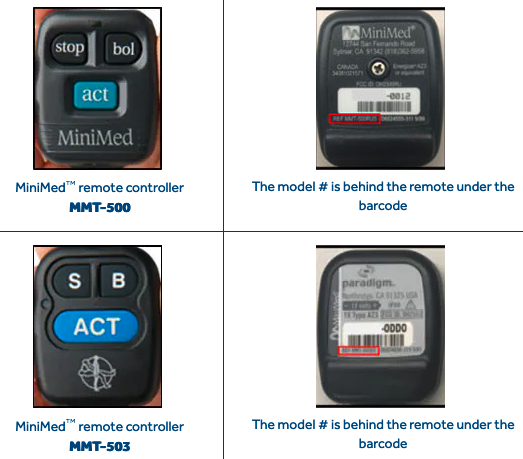Medtronic Recalls Medical Devices Due to Security Risks That Can Lead to Injury, Death
Medical device maker Medtronic is recalling remote controllers used with some of its insulin pumps due to cybersecurity risks that could lead to injury and even death.
The recall is related to a series of vulnerabilities discovered by a team of cybersecurity researchers in 2018. In June 2019, the U.S. Food and Drug Administration (FDA) and Medtronic informed the public of a recall of MiniMed 508 and Paradigm series insulin pumps due to vulnerabilities that could allow an attacker to remotely hack the devices.
The FDA and Medtronic said that some affected users — whose devices were under warranty — were notified as early as August 2018.
That recall is now being expanded by Medtronic to the optional remote controllers associated with the affected insulin pumps. Users of these devices have been sent updated instructions, including for stopping the use of impacted controllers and returning them.
The FDA said more than 31,000 devices have been recalled in the United States. The agency and Medtronic noted that the affected MiniMed MMT-500 and MMT-503 controllers are no longer manufactured or distributed.

“The FDA has identified this as a Class I recall, the most serious type of recall. Use of these devices may cause serious injuries or death,” the FDA said.
However, both the FDA and Medtronic pointed out that they are not aware of any reports of patient harm related to the vulnerabilities.
The cybersecurity flaws discovered by researchers in these devices are related to the wireless communications between the remote controller and the insulin pump. The controller enables users to program the amount of insulin being delivered to the patient.
An attacker in close proximity of the target can intercept the radio frequency signals between the remote controller and the insulin pump and replay them at a later time to either deliver an additional dose of insulin or prevent the delivery of insulin.
“Using specialized equipment, an unauthorized person could instruct the pump to either over-deliver insulin to a patient, leading to low blood sugar (hypoglycemia), or stop insulin delivery, leading to high blood sugar and diabetic ketoacidosis, even death,” the FDA explained.
While the risks posed by these vulnerabilities could be serious, attacks can only be launched under certain conditions. For an attack to work, the victim must enable the remote option for the pump, register the remote controller to the pump, and have a feature named “Easy Bolus” enabled. In addition, the attacker needs to be in close proximity to the victim, and the victim would need to ignore the alerts from the pump indicating that a remote bolus is being delivered.
Nevertheless, Medtronic “has determined that the potential risks associated with the MiniMed remote controller outweigh the benefits of its continued use.”
Several cybersecurity advisories have been issued over the past few years for vulnerabilities discovered in Medtronic products. While device manufacturers can quickly provide mitigations for flaws found in their products, delivering patches can be a lengthy process due to the required regulatory approvals.
Related: FDA Warns of Flaws in Medtronic Programmers
Related: DHS Warns of Vulnerabilities in Medtronic Defibrillators
Related: St. Jude Medical Recalls 465,000 Pacemakers Over Security Vulnerabilities
http://feedproxy.google.com/~r/securityweek/~3/jsEInDpQEKg/medtronic-recalls-medical-devices-due-security-risks-can-lead-injury-death

